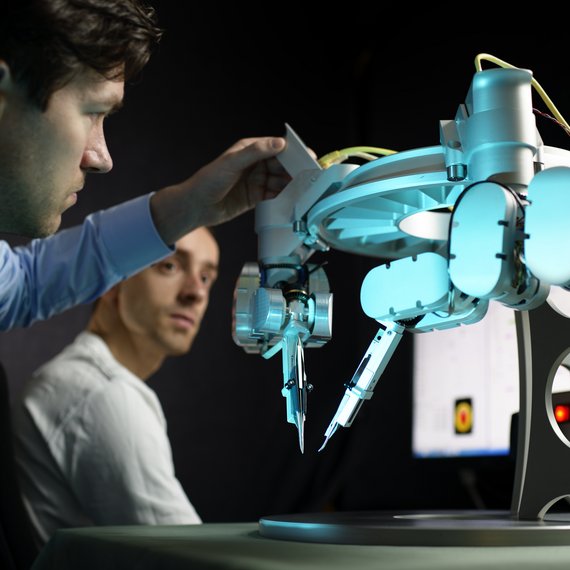Datum
donderdag 13 juni 2019 vanaf 3:00 PM tot 6:00 PMLocatie
TU/e CampusOrganisator
High Tech Systems CenterPrijs
Free of chargeGebouw
Ceres building- Nu aanmelden
Where people from science and industry come together around a topic
On Thursday 13th of June the HTSC Research Meet will take place in the Ceres building at the TU/e Campus.
The topic of this meet: Digital Engineering and will be chaired by our colleague Marc Hamilton
Program
| 15:00 | Welcome | Marc Hamilton MSc, MDE Expert at Altran Netherlands and Fellow at TU/e HTSC |
| 15:10 | Experience with digital engineering at Stamicarbon | Dr. Rob Faessen, Business Development Manager - Digital at Stamicarbon B.V. |
| 15:40 | Analysis of Discrete Behaviour in Supervisory Control Software | Thomas Neele MSc TU/e department Mathematics & Computer Science - Model Driven Software Engineering |
| 16:00 | Break | |
| 16:15 | Bringing Domain-Specific Languages Closer to End-Users | Mauricio Verano Merino MSc TU/e department Mathematics & Computer Science - Model Driven Software Engineering |
| 16:35 | The Computer Science, the Bridge Between Scientific Domains which Facilitates the Integration of Disciplines | Dr. ir. Ion Barosan TU/e department Mathematics & Computer Science - Model Driven Software Engineering |
| 17:05 | Network & drinks | |
| 18:00 | End |
Abstracts
Experience with Digital Engineering at Stamicarbon
Dr. Rob Faessen
Stamicarbon is world leader in design, licensing and development of urea plants for the fertilizer industry. It offers full life cycle support to urea producers worldwide and develops innovative future-proof solutions for applications ranging from NOx reduction in diesel engines to improving and optimizing production of farmers. Rob Faessen will share experiences of Stamicarbon with the automation of design steps and explain the importance of further integration of the various disciplines.
Analysis of Discrete Behaviour in Supervisory Control Software
Thomas Neele, MSc.
Software is playing an ever more important role in high-tech industry, for example to perform supervisory control. Bugs in software that is already on the market can be very costly. Therefore, we develop analysis methods that can catch errors early in the development cycle. Model checking, a classical technique for behavioural analysis, typically suffers from scalability issues, which we try to address. I will present my work on model checking of infinite-state systems and model checking of an industrial system at ASML.
Bringing Domain-Specific Languages Closer to End-Users
Mauricio Verano Merino MSc.
In this talk, I will show how we generate generic tools that make DSLs closer to end-users. In particular, I will explain how we have integrated Jupyter notebooks and block-based environments, such as Scratch, with domain-specific languages and language workbenches.
The Computer Science, the Bridge Between Scientific Domains which Facilitates the Integration of Disciplines to Improve Model-Based Systems Engineering Approach
Prof.dr. Ion Baroson
With his experience in model-based systems engineering in various domains with a focus on automotive, Ion Barosan is a driving force behind the research of systems engineering in software-intensive systems. He will explain how Computer Science contributes to the integration of disciplines and how it facilitates systems engineering at different departments. Also, he will present a new framework for educating students in system engineering, based on creativity and system engineering patterns approach and its applicability in automotive and other domains.
